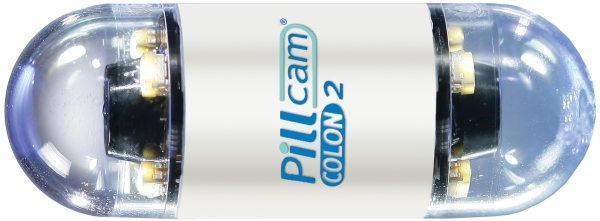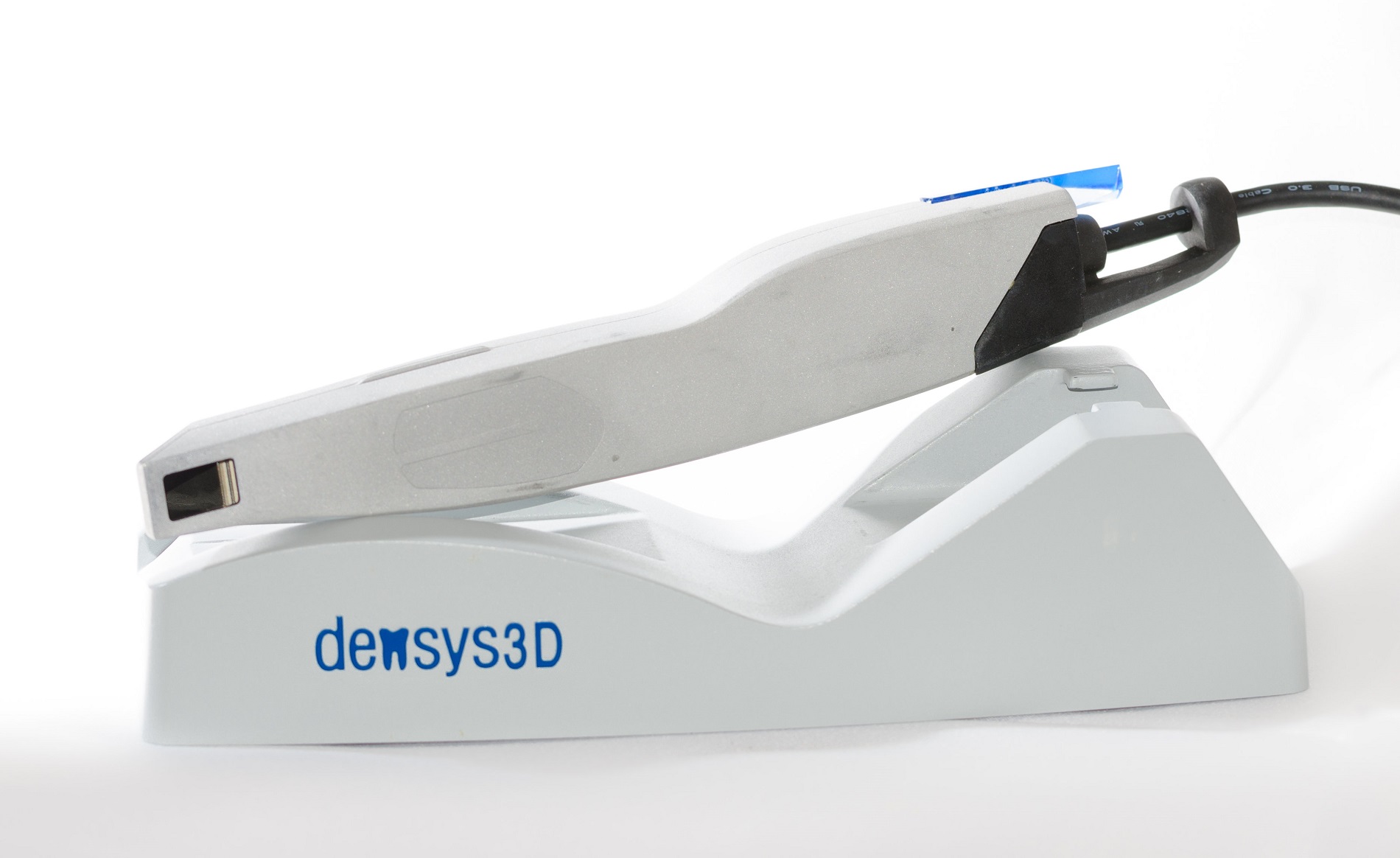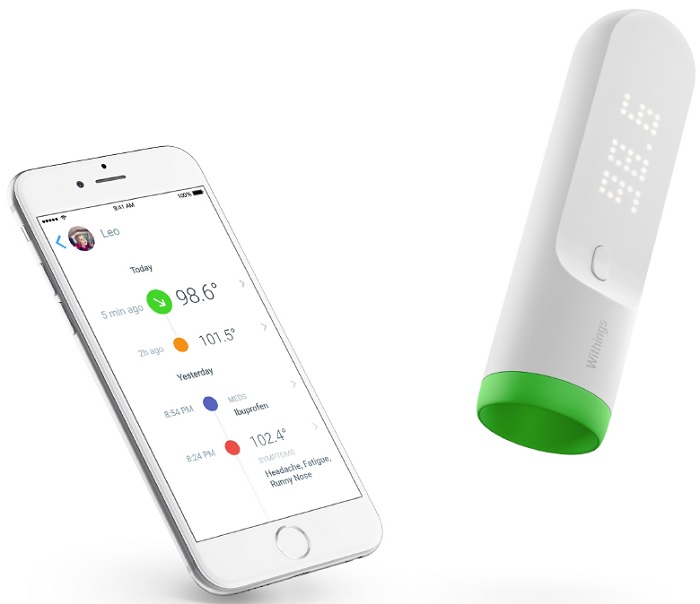Additional study also validates using PillCam COLON as a useful tool for GI physicians for patients with incomplete colonoscopies
ORLANDO, Fla.,May 21, 2013 (GLOBE NEWSWIRE) --Given Imaging Ltd, (Nasdaq:GIVN), a world leader in GI medical devices and pioneer of capsule endoscopy, today announced a secondary analysis of data from its prospective, multicenter clinical trial to assess the accuracy and safety of PillCam COLON for detecting lesions at least 6 mm in size.
Douglas Rex, M.D., Distinguished Professor of Medicine and Chancellor's Professor, Indiana University School of Medicine and Director of Endoscopy, Indiana University Hospital and PillCam COLON pivotal trial lead investigator, presented these data at a podium presentation today at Digestive Disease Week® (DDW) taking place May 18 - 21, 2013 here at the Orange County Convention Center.
"Detecting adenomas is one of the highest clinical priorities in evaluating patients as 65% to 70% of colorectal cancers develop from adenomas. To this end, I am encouraged by the results of this analysis, especially the sensitivity for detecting adenomas. They show that PillCam COLON may be an appropriate tool to help physicians identify adenomas in patients who cannot undergo colonoscopy," said Dr. Rex. "Among the most utilized alternatives to colonoscopy available, most involve radiation. Data from this study appear to clinically validate PillCam COLON as an adequate, minimally invasive, radiation-free and a patient-friendly option for gastroenterologists to provide optimal care for patients."
Dr. Rex presented data from the 16-site study, podium presentation 907, Accuracy of PillCam Colon 2 for Detecting Subjects with Adenomas ≥ 6 mm. Overall, 884 patients at average risk for colon cancer as defined by the U.S. Multi-Society Task Force guidelines on colorectal cancer screening were enrolled into the pivotal study. Following bowel prep, the patients visited the investigator's office in the morning and ingested a PillCam COLON capsule endoscope, which transmitted images to a wireless recorder worn by patients as they went about their daily routine for up to 12 hours. The resulting video sequences were stored and saved until after the patients had a traditional optical colonoscopy four to six weeks later. The capsule results were unblinded and reviewed after the traditional colonoscopy was performed and then the two video sequences were compared with the goal of identifying all polyps that were at least 6 mm and then those at least 10 mm. When doctors found evidence of a polyp on the PillCam COLON sequences that they didn't see during the colonoscopy, a follow-up colonoscopy was performed to confirm or rule out the capsule finding.
The data analysis applied to the subset of subjects showed PillCam COLON had 88% sensitivity and 82% specificity in detecting adenomas at least 6 mm in size and 92% sensitivity and 95% specificity in detecting adenomas at least 10 mm in size. These data provide preliminary evidence that PillCam COLON approaches the effectiveness of optical colonoscopy to detect conventional adenomas and, like colonoscopy, provides direct visualization of the entire colon mucosa. This data is not included in the proposed FDA labeling for the PillCam COLON capsule now under review at the agency.
"We are in the final stages of our clearance process with the FDA to market PillCam COLON for the detection of polyps in patients following incomplete colonoscopy, which we believe represents a sizable initial opportunity for PillCam COLON as an additional tool for gastroenterologists that does not require sedation or radiation and allows them to deliver the best possible care to their patients," said Homi Shamir, President and CEO, Given Imaging. "This adenoma detection analysis underscores the great potential we see for future expanded indications for PillCam COLON after the initial clearance is obtained. These data build upon the extensive clinical experience that gastroenterologists outside of the U.S. have already had with PillCam COLON and we continue to advance regulatory approval for PillCam COLON in other major countries around the world in a range of diseases of the small bowel and colon."
PillCam® COLON is under review with the FDA, and is not cleared for marketing or available for commercial distribution in the U.S.A. and there is no assurance that such clearance will be obtained.
Dr. Douglas Rex is a paid consultant of Given Imaging.
In an additional study presented at DDW, poster presentation Tu1316, French Muticentric Experience of Colon Capsule Endoscopy in Real Practice : Primary Results of the Colon Capsule Endoscopy Observatory "ONECC", investigators led by Jean Christophe Saurin, M.D., Ph.D., Hospices Civils de Lyon, Lyon, France, evaluated the feasibility of PillCam COLON in a general practice setting and also in a variety of populations including in patients who had a failed colonoscopy, are contra-indicated for colonoscopy or those who refused colonoscopy. The observational study collected data from 94 centers enrolled in the French national colon capsule endoscopy network (ONECC). From these centers, PillCam COLON identified 233 polyps in 108 of the 245 subjects. Significant polyps, defined as polyps larger than 5 mm or cases of at least 3 polyps, were detected in 22.9% of patients with a failed colonoscopy, 30.2% in patents contra-indicated for colonoscopy and 15.1% of patients who refused colonoscopy. Researchers concluded that it is feasible to use PillCam COLON in a general practice setting and that PillCam COLON has a significant clinical impact on the detection of colonic polyps in diverse patient populations.
About PillCam® COLON
The PillCam COLON video capsule is equipped with two miniature color video cameras (one on each end), a battery and an LED light source; it measures 11 mm X 31 mm. PillCam COLON is designed to be ingested by the patient and transmit up to 35 frames per second for approximately 10 hours to a recording device worn by the patient. Data are transferred from the device to a computer that uses RAPID software to compile the video data and enable the physician to review and report the results of the PillCam study.
The risks of PillCam capsule endoscopy include capsule retention, aspiration and skin irritation. The risks associated with colon preparation are allergies or other known contraindication to any preparation agents or medications used for the PillCam COLON regimen, according to laxative medication labeling and per physician discretion. After ingesting the PillCam capsule and until it is excreted, patients should not be near any source of powerful electromagnetic fields, such as one created by an MRI device. Medical, endoscopic or surgical intervention may be necessary to address these complications, should they occur. A normal or negative capsule endoscopy examination does not exclude the possibility of colon polyps or colon cancer.
About Digestive Disease Week®
Digestive Disease Week® (DDW®) is the largest international gathering of physicians, researchers and academics in the fields of gastroenterology, hepatology, endoscopy and gastrointestinal surgery. Jointly sponsored by the American Association for the Study of Liver Diseases (AASLD), the American Gastroenterological Association (AGA) Institute, the American Society for Gastrointestinal Endoscopy (ASGE) and the Society for Surgery of the Alimentary Tract (SSAT), DDW takes place May 18 – 21, 2013, at the Orange County Convention Center, Orlando, FL. The meeting showcases more than 5,000 abstracts and hundreds of lectures on the latest advances in GI research, medicine and technology. More information can be found at www.ddw.org.
About Given Imaging Ltd.
Since pioneering the field of capsule endoscopy in 2001, Given Imaging has become a world leader in GI medical devices, offering health care providers a range of innovative options for visualizing, diagnosing and monitoring the digestive system. The company offers a broad product portfolio including PillCam® capsule endoscope for the small bowel, esophagus and colon. The company also offers industry-leading GI functional diagnostic solutions including ManoScan® high-resolution manometry, Bravo® capsule-based pH monitoring, Digitrapper® pH-Z, and the SmartPill® GI monitoring systems. Given Imaging is committed to delivering breakthrough innovations to the GI community and supporting its ongoing clinical needs. Given Imaging's headquarters are located in Yoqneam, Israel, with operating subsidiaries in the United States, Germany, France, Japan, Australia, Vietnam, Hong Kong and Brazil. For more information, please visit www.givenimaging.com.















